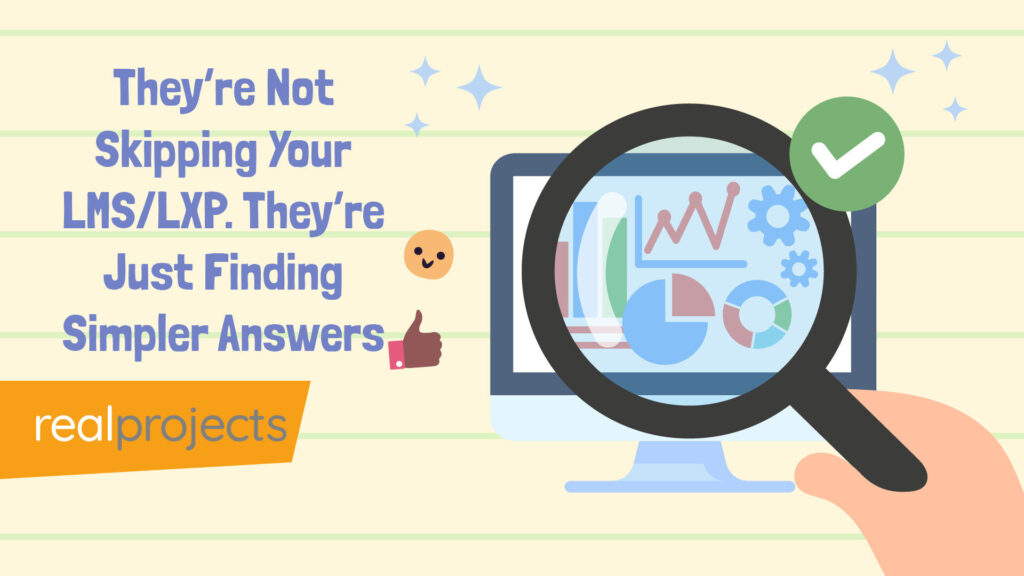How to Fix SCORM Upload Issues in Your LMS or LXP
If you are publishing an elearning course or piece of content it is important that you know the SCORM settings of the LMS/LXP platform. There are now so many authoring tools available and a plethora of LMS and LXP platforms that you can’t simply assume that you can publish and go.
The value of SCORM is that it should make it easier to share content objects between platforms like an LMS or LSP and get all of the data and functionality that comes with it. Companies use SCORM because it is still a great way for getting content into their LMS or LXP, but you might come across one or two problems along the way!
In theory you should be able to publish your SCORM file, upload to your LMS/LXP and you’ll be able to use your content straight away, but it’s not always that easy.
Often you’ll find that your SCORM file will fail validation and you can’t use the content. It is vital that you understand the publishing process and settings for your content, this isn’t as difficult as you think. If you are using a specific authoring tool the company will often have a list of settings various LMS/LXP vendors.
It is likely that you will come across problems when uploading your content but don’t worry. The solutions are available and it’s not as difficult as you think.
What about Authoring Tools and SCORM?
Elearning authoring tools like Articulate 360 have a number of publishing settings for SCORM and you will need to check what your LMS/LXP provider requires for your content to work. Speak to your client and/or LMS provider. Obtain all of the technical requirements for your platform and the authoring tool that you are using.
Validation issues are often easily resolved by knowing the publishing settings that are required for the LMS and your authoring tool. If you don’t know them, make sure you reach out to your vendor and get them. You’ll find that they are often published on the vendor website.
If you are still having trouble with your files being uploaded to an LMS then check the filesize of your SCORM file. Often there is a file restriction on the SCORM file. Despite our increased network bandwidth and improved networks there can still be a restriction on uploads. You might also be surprised how large your SCORM file is, especially if you are using a lot of video.
If you have a SCORM file that has a large file size you might need to speak to your LMS/LXP vendor about how you can get your file uploaded. In some instances you might need to go back and reduce the size of the file. This can be done by reducing the size of video or images – or checking the compression that you have used within your course or content.
Problems with uploading files
SCORM files don’t need to be difficult to upload. If you are using an LMS or LXP for the first time it is a good idea to create a test file that you upload to the LMS using the known publishing settings. Don’t want until the end of your project to complete your upload test.
If you have uploaded a SCORM file that works and has been validated you can use this as a ‘control’ and review this file if you have any problem later when you upload your published file. If you are buying elearning courses or a specific library, the courses are likely to come as SCORM files. You need to make sure that your LMS/LXP will accept SCORM files.
There are still systems out there that don’t accept SCORM and use its own file system, or won’t allow you to update your own content – check your contract.
If you have an elearning review process is it a good idea to include uploading a test SCORM file during the project, don’t want until the end of the project to upload the file.
Creating SCORM files and uploading them to a LMS/LXP is often something that people are concerned about or get worried about. Don’t be. Take your time and do your research.
Remember that you are using a set of standards that are in place and are being used worldwide. Avoid getting confused by the jargon and terminology that surrounds SCORM. Critically your course is using a set of standards that have been in place for years. Ensure that you understand what software you are using and what you uploaded to. Take some time to check the publishing settings of your software tool and the settings for the LMS.
If you have done this you’ll be making a good start. Check filesize restrictions and any requirements from the platform provider. Don’t forget any restrictions on the filename and make sure you’ve created your scorm file in the correct way. Remember no spaces in the filename and a correctly created zip file.
This is a good file for upload a SCORM file: scormcoursev1.zip
If you want to have a space between the file then use underscores or a hyphen. This is another example that will work:
scorm_course_v1.zip
If you put spaces in your filename then it will mostly likely fail on your LMS or LXP:
scorm course v1.zip
If you’ve completed this you should have fewer problems!
Still having problems?
Create an account at SCORM Cloud. You can then upload your file and test that it is valid. SCORM Cloud is widely used and accepted as the industry standard for testing SCORM validation. If you file uploads and works with no problems within SCORM Cloud then the likelhood is that the problem is at the LMS end.
You can test the course and get the reports that you need. If you have a developer they can do some detailed testing and debugging. It is an excellent resource that you can use. There is a free option that might be all that you need. This should be in your toolbox as an elearning developer or L&D Director.
FAQs
Why is SCORM important?
SCORM makes sure your elearning course works with different LMS and LXP platforms. It follows standard rules, so your course can track progress, scores, and completion.
How do I publish a Storyline in SCORM?
Choose SCORM when publishing in Storyline. Check with your LMS provider for the correct version (like SCORM 1.2 or 2004) and use the recommended settings for smooth upload.
What are the SCORM standards?
SCORM standards are rules for how online courses talk to learning platforms. They help your course report things like when it starts, how long it’s used, and if it’s finished.
What is the disadvantage of SCORM?
SCORM can be tricky to set up. File sizes, upload limits, or settings might cause problems. If something goes wrong, it’s hard to know if it’s the course or the LMS.



